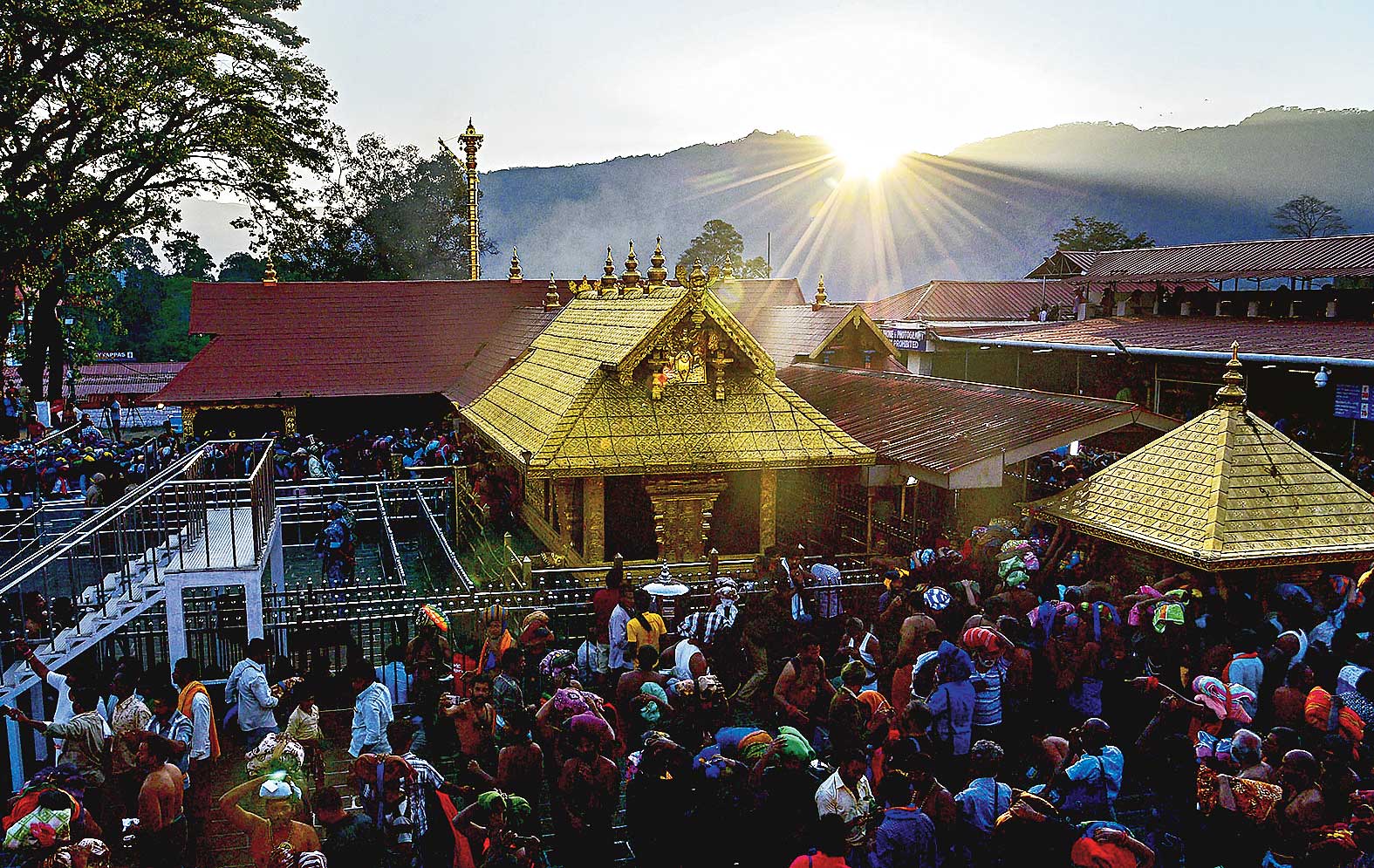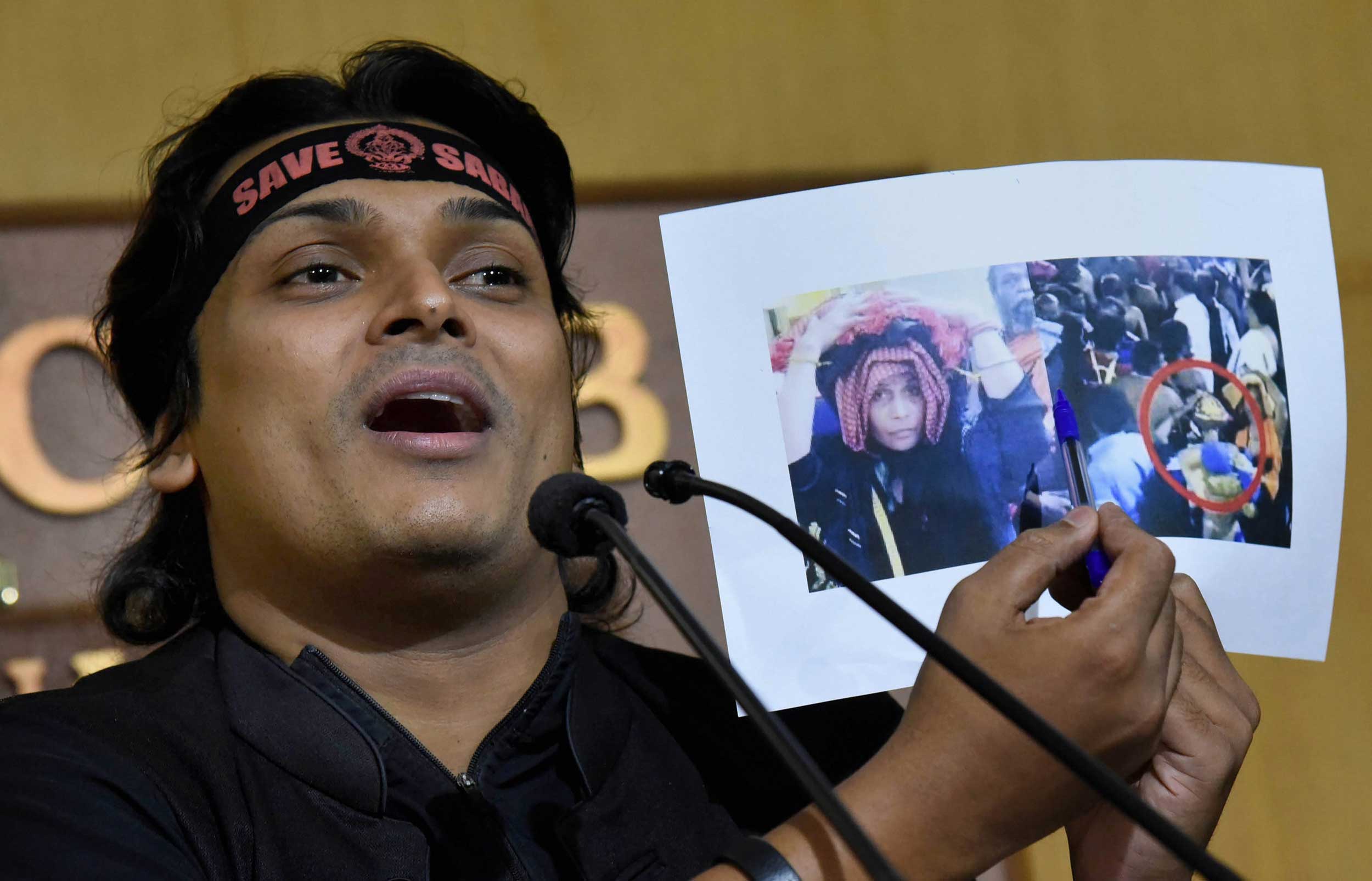A group of Ayyappa devotees petitioned the Supreme Court on Saturday seeking live telecast of its hearing of review petitions against the September 28 judgment that quashed the ban on women of childbearing age visiting the Sabarimala temple.
“Every citizen of the state of Kerala and its neighbouring states, nay, Keralites all over the world, for that matter Lord Ayyappa devotees all over the world, are interested in the hearing,” the National Ayyappa Devotees Association’s petition, moved through advocate Mathews J. Nedumpura, said.
“There cannot be an issue of greater… public interest or concern…. Video-recording of the said case would mean the entire proceeding(s) thereof being perpetually available for posterity.”
Never before has the apex court’s proceedings been telecast or streamed live. Last August, though, the Centre had placed before the court a set of proposed guidelines on the live streaming of its proceedings as a pilot project.
“If the proceedings…. are allowed to be telecast, then millions of devotees… all over the world will have the opportunity to hear and watch what has transpired in the court, which is dearer (sic) to their heart,” the Ayyappa devotees’ petition said.
On January 22, a five-judge constitution bench will take up a batch of 49 review petitions and four fresh applications, including two contempt pleas accusing Kerala BJP president P.S. Sreedharan Pillai and temple head priest Kantararu Rajeevaru of defying the September judgment.
The petition said the judgment was an infringement of Ayyappa devotees’ freedom of conscience and faith and their right to practise their religion, as enshrined in Articles 25 and 26 of the Constitution read with Articles 14 (equality) and 21 (life and liberty).
It added that the shrine had become “a war zone” since the verdict, “so too the state of Kerala, leading to political and communal clashes reaching (their) zenith”.
The petition alleged the overturning of the ban on women aged 10 to 50 had “to put it in modest terms, meant literal shockwave of the faith, feelings and emotions of millions of Lord Ayyappa devotees… women in particular”.
“The protests against the judgment of this court have come out in the form of an impromptu protest of the women devotees than the men folk and political parties,” it averred.
For months after September 28, Sangh parivar-led mobs had prevented women of childbearing age from entering the shrine despite the state government’s efforts to implement the verdict.
After two women in their 40s did enter this month, the head priest closed the temple for an hour and performed “purification” rituals, sparking controversy and a contempt petition.
On November 13, a five-judge constitution bench had briefly taken up the review petitions but had declined to stay the September 28 judgment, a split verdict passed 4:1 by an earlier five-judge bench.













